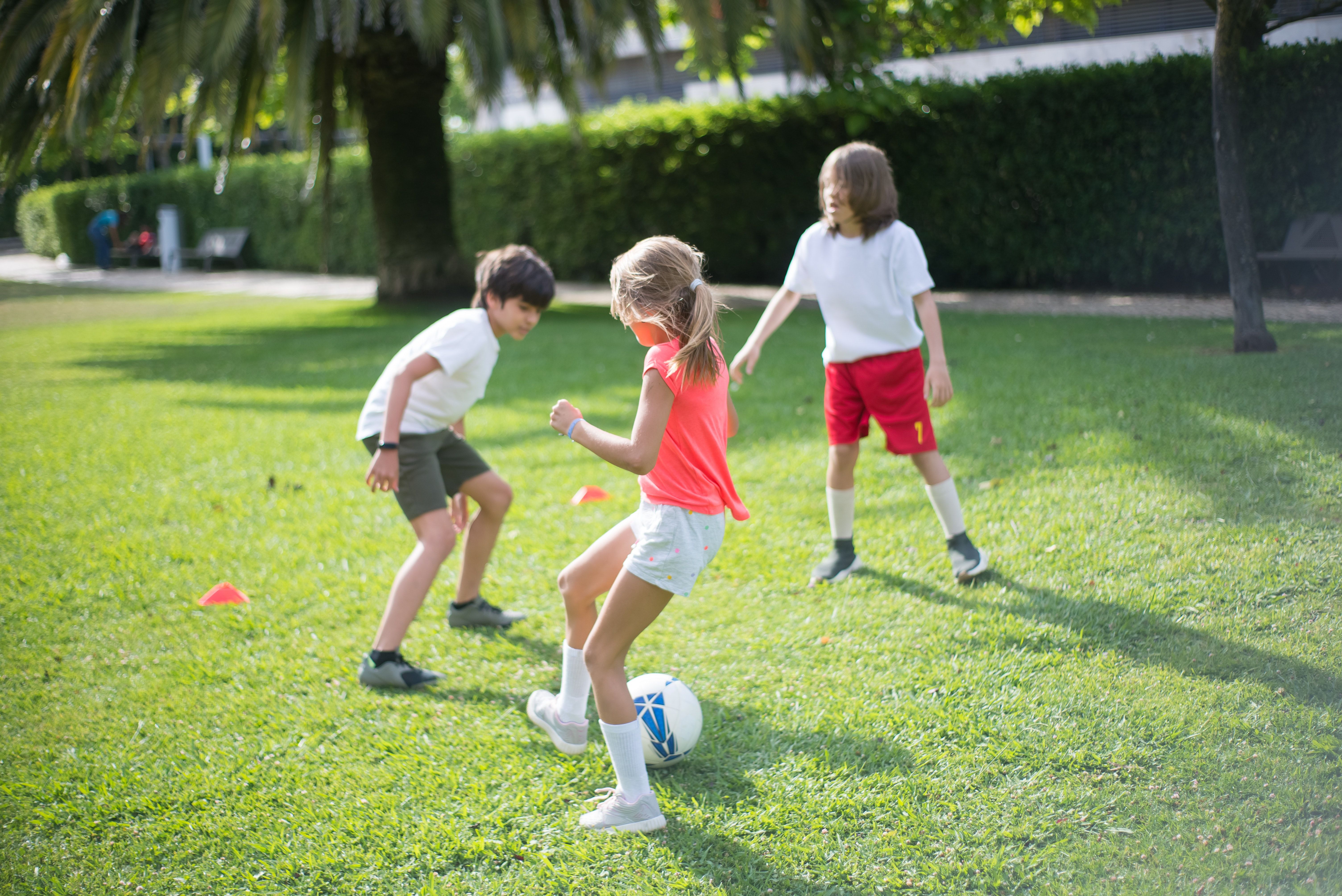
How to Improve Your Child's Executive Functioning
Executive functioning is the umbrella term for the mental processes that enable us to plan, focus attention, remember instructions, and juggle multiple tasks at the same time. These skills are instinctive to some, but not at all for others. The good news is that our executive functioning is extremely malleable, and can be easily improved with practice.

Does your child finish their homework on time but forget to turn it in? Do you find yourself bringing their lunch to school multiple times a week? Do they tell you about a major project the night before it’s due? Do they get distracted in the middle of a task or take hours to complete it?
If you answered “yes” to the above questions, you’re not alone! Many young students struggle with self-regulation, also known as “executive functioning.” Executive functioning is the umbrella term for the mental processes that enable us to plan, focus attention, remember instructions, and juggle multiple tasks at the same time. These skills are instinctive to some, but not at all for others. The good news is that our executive functioning is extremely malleable, and can be easily improved with practice. An early grasp on executive functioning can set students up for success in their academic careers and beyond. The following tips can help children practice these skills without even knowing it, and make strong executive functioning second nature.

Make a List, Check it Twice
Checklists are a great way to get kids to plan their day and keep track of their responsibilities. Encouraging your child to write down what they have to do each day helps them preempt due dates and manage their time alongside other responsibilities and chores. Schools often issue planners to students, but they don’t always explain how to make these planners useful. Reminding your child to write down their tasks and the amount of time they have to complete them (or when they should be finished by) helps them mentally track their obligations. What’s more, crossing out to-do list items once completed can give a child a sense of reward – and even lead to a real reward!
“Many of our tutors report improved executive functioning skills in middle and high schoolers when students are taught to use apps like Trello or Excel to make online checklists and timetables,” explains Ivy Tutors Network’s founder, Lisa Speransky. “These are tools used by adults managing anything from home shopping lists to large teams and budgets. We like to empower our students with the use of these tools so they can gradually learn to visualize and prioritize like the pros.”
Consistency is Key
A stable routine is hugely beneficial for children’s working memory, a major component of executive functioning. Working memory is a type of short-term memory that involves temporarily storing information in order to put it to use later. A schedule with consistency gives children the stability to focus on bite-sized pieces of new information, like instructions on how to play a game or solve a problem. That way, they don’t have to constantly account for large changes in their environment and day-to-day life, and can instead focus on the task at hand. A routine can also reduce stress, which takes away from a child’s ability to remember short-term information.

Get Physical!
Research by Dr. Adele Diamond, a professor of neuroscience at the University of British Columbia, shows that physical activity and organized sports benefit the development of executive skills in children. Games, like soccer or basketball, or aerobic exercise, like yoga or martial arts, require children to monitor their own performance, keep track of and adapt to others around them, and remember rules and strategies. Physical activity allows for executive function practice in a fun, and more importantly, healthy way. Exercise pumps blood - and therefore, oxygen - to the brain, which is crucial for a child’s all-around development.
Playdates Pay Off
An interactive, social environment can provide a surprisingly good opportunity for children to practice their executive functioning - without even knowing it. Cooperation and interaction with other children form important skills for a child learning to self-regulate. Children at play are learning to take turns, listen actively, and adjust to different situations that arise with social interaction. It also helps them think from someone else’s perspective, which can, in turn, help young students learn to adapt their attention and focus on multiple tasks at once. Plus, playdates are fun!
Consider Mindfulness
Helping children learn to cope with stress is another way to improve executive functioning, especially for kids learning to juggle multiple deadlines and priorities for the first time in their lives. Introducing children to mindfulness can be incredibly impactful. For those interested in integrating mindful relaxation techniques, Big World of Little Dude offers a unique book titled Brain Vacation: A Guide to Meditation that is specially designed to help young children explore meditation in a simple and engaging way. Through playful activities and guided imagery, this resource supports children in calming their minds, which in turn can help unlock their natural curiosity and focus for learning.
Remember, encouraging and improving executive functioning for young learners is a continuous process. According to Harvard Health Publishing, our executive function begins to develop during the first year of life, but it isn’t fully developed until early adulthood. In addition, every child may adjust differently to certain interventions as they find what works for them. For example, imposing computer-based memory and time management games may make less sense for a child who is already anxious or stressed. Every child is different and may reach executive function milestones at different times.
Despite certain challenges, working to improve executive functioning is very much worth the effort. Time management, organization, self-awareness, and a great working memory are all skills that will help children flourish as they reach adulthood. In our performance-based culture, the work along the way can sometimes get overlooked. Take time to figure out what works for you and your child. It’s the consistent effort that helps develop the skills that lead to success.


